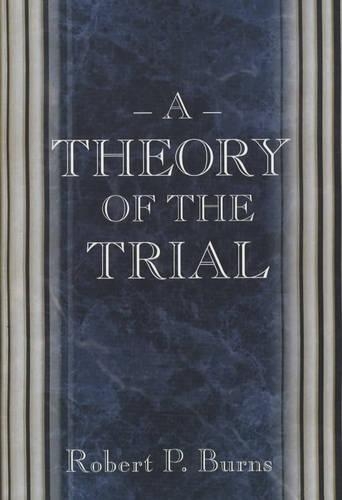
A Theory of the Trial
(Paperback)
Publishing Details
A Theory of the Trial
By (Author) Robert P. Burns
Princeton University Press
Princeton University Press
7th January 2002
United States
Classifications
Professional and Scholarly
Non Fiction
Criminal law: procedure and offences
Ethics and moral philosophy
345.7302
Physical Properties
Paperback
264
Width 152mm, Height 235mm
340g
Description
Anyone who has sat on a jury or followed a high-profile trial usually comes to the realization that a trial, particularly a criminal trial, is really a performance. Verdicts seem determined as much by which lawyer can best connect with the jurors as by what the evidence might suggest. In this celebration of the American trial as a great cultural achievement. Robert Burns explores how these legal proceedings bring about justice. He explores the rich narrative structure of the trial, beginning with the lawyers' opening statements, which establish opposing moral frameworks in which to interpret the evidence. In the succession of witnesses stories compete and are held in tension. And then at some point during the performance, a sense of the right thing to do arises among the jurors. Burns's investigation draws on careful descriptions of what trial lawyers do, the rules governing their actions, interpretations of actual trial material, social science findings, and a broad philosophical and political appreciation of the trial as a unique vehicle of American self-government.
Reviews
"Burns makes an original contribution by drawing on his own experience to show lawyers drafting opening statements and otherwise shaping and dramatizing their courtroom performances."--Choice
Author Bio
Robert P. Burns is Professor of Law at Northwestern University School of Law, where he teachers evidence, legal ethics, and procedure. He has practiced law for twenty-five years and has published widely in law journals and reviews.
